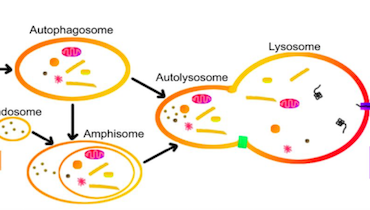Neuropathic Lysosomal storage disorders
Pathology, therapeutic possibilities and clinical outcomes measures
Lysosomal Storage Diseases (LSDs) are a heterogeneous group of rare disorders, each of which is caused by the deficiency of a lysosomal enzyme or an essential cofactor leading to deposition of the substrate within the lysosomes, resulting in cellular and tissue dysfunction. While clinical features vary from disease to disease, neurological complications are quite common and may include developmental delay, behavioral/psychiatric disturbances, mental deterioration, involuntary muscle spasms, seizures, acroparesthesia, motor weakness, cerebrovascular ischemic events, and extra-pyramidal signs. Therapies including enzyme replacement therapy (ERT) are now available for multiple LSDs with published guidelines for monitoring, treatment and clinical outcome measures. However, while ERT helps to slow down the disease progression and improve clinical symptoms, but it cannot affect neurologic features due to its inability to cross the blood-brain barrier. Advanced therapies for LSDs that have been in pipeline include stem cell transplants, gene therapy, small molecule/nanomedicine approaches, and genome editing. Although newer approaches seem promising, there is no consensus on outcome measures or specific biomarkers to define the neurological involvement in LSDs. This workshop will focus on basic mechanisms behind the pathophysiology and establishing clinical outcome measures for disease monitoring specifically towards emerging treatment strategies for neuropathic LSDs.
Educational objectives
Neurological manifestations in LSDs
Natural history of disease progression in neuropathic LSDs
Underlying mechanisms behind pathophysiology of neuropathic LSDs leading to potential therapeutic approaches
Importance of genetic counseling to patients and families with neuropathic LSDs
Relevance of patient derived cellular models and animal models in development of advanced therapies
Recent advances from clinical studies for LSDs with CNS involvement
Emerging therapeutic approaches with special focus on gene therapies
Developments in novel biomarkers and outcome measures to assist in clinical management
LSDs in focus
Fabry disease
Gaucher disease
Pompe disease
Tay-Sachs disease
Mucopolysaccharidoses (MPS)
GM1 & GM2 Gangliosidoses
Metachromatic Leukodystrophy
Neimann Pick diseases


